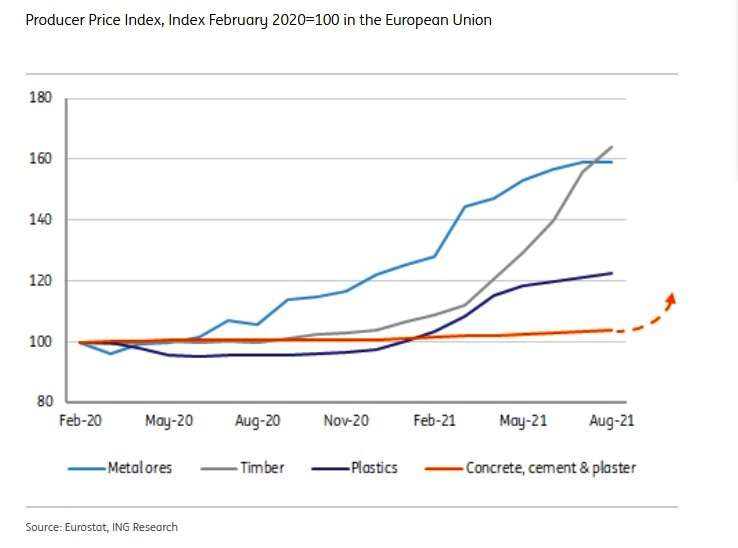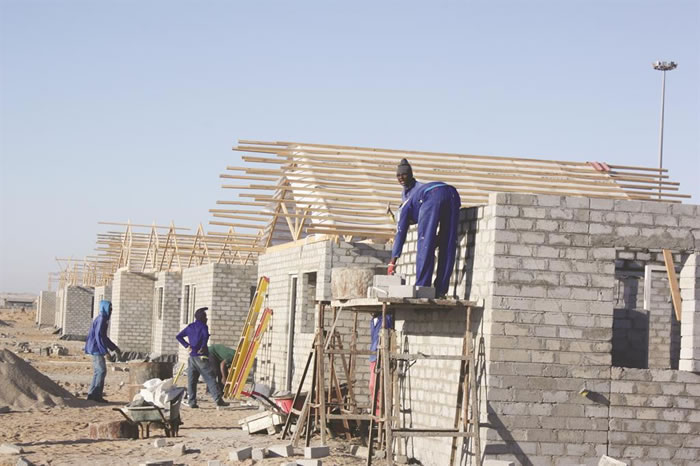Imagine planning your dream home, only to have the foundation crumble before it's even laid. That's the harsh reality facing many Lagosians today as the price of a 50kg bag of cement has skyrocketed to a staggering N9,500 in retail outlets across Lagos.
This crippling N9,500 cement price isn't just a bump in the road – it's a roadblock for the entire construction industry, throwing a wrench into projects and fueling inflation's already destructive fire.
In this article, we'll venture deep into the reasons behind this price surge, explore the impact on Lagosians and the construction sector, and analyze potential solutions to get this crucial industry back on track.
The Nigerian construction industry, particularly in Lagos, is facing a major hurdle as the cement price hits N9,500 in retail outlets across Lagos. This sharp increase adds another layer of strain to an already struggling economy grappling with inflation.
So, keep reading as we check out the reasons why cement price hits N9,500 in retail outlets across Lagos and its far-reaching consequences.
A Price Trajectory Going Up Since January

A recent survey conducted by Nairametrics revealed a concerning trend in cement prices throughout 2024. In January, a bag of cement cost around N6,000, offering a sense of normalcy for the construction sector.
However, February witnessed a price jump to N6,500, raising initial concerns. Now, in June, the cement price has hit N9,500 in Lagos, leaving many construction projects in limbo and budgets in disarray. This dramatic rise threatens the viability of numerous construction projects in Nigeria's economic sector.
Retailers Caught in the Price Squeeze

The erratic price hikes have forced some retailers to take drastic measures. Fearing being stuck with inventory purchased at a lower price point, some have opted to halt sales altogether.
A cement retailer in Ikorodu, who preferred anonymity, shared his predicament: "I stopped selling around Monday because my distributor hasn't provided the current price. They told me to wait for now." This wait-and-see approach highlights the uncertainty plaguing the market in the wake of the cement price hitting N9,500 in Lagos.
For retailers who remain open, the situation translates into a significant drop in sales. Another vendor lamented the current situation: "January and February are usually our peak sales period, but everywhere is just quiet. N9,000 for a bag of cement is too expensive and discourages people from starting any projects."
This sentiment underscores the potential ripple effect of the N9,500 Lagos cement price, impacting not just construction projects but also the incomes of those who rely on the sale of building materials.
Broken Promises and Unclear Explanations

The current price surge casts a shadow of doubt on the commitment made by BUA Cement, a major player in the Nigerian cement industry. In October 2023, following a meeting with President Tinubu, BUA chairman Abdulsamad Rabiu pledged to cap the price of their cement at N3,500 per bag.
This promise offered a beacon of hope for the construction sector, but the current reality paints a different picture, with BUA cement currently retailing for N9,500 in Lagos.
This significant discrepancy raises questions about transparency and accountability within the industry, particularly in light of the steep rise in cement prices across Lagos.
A Confluence of Factors Driving Up Costs
While the precise reasons behind the price surge remain unclear, industry experts point to a confluence of factors. A projection by Cardinal Stone, a leading building materials supplier, foresaw high cement prices throughout 2024 due to increased operational costs faced by producers.
This aligns with Dangote Cement's Q3 2023 financial report, which revealed a concerning 33% year-on-year rise in operating expenses. These rising costs put pressure on producers, potentially translating into the N9,500 cement price tag now seen in Lagos.
Government Policy and its Potential Impact
The Cement Producers Association of Nigeria (CPAN) previously raised concerns regarding the federal government's plan to prioritize concrete road construction. They warned that this shift could lead to a surge in cement prices, pushing them from N5,000 to N9,000.
With prices now reaching that very mark, CPAN's concerns seem to be materializing. This situation highlights the potential unintended consequences of government policies and the need for open communication and collaboration between policymakers and industry stakeholders, especially in the face of the N9,500 cement price hitting Lagos retailers.
The Road Ahead for Construction

The astronomical rise in cement prices throws a wrench into the plans of many Lagosians looking to build or renovate. This price hike, coupled with rising inflation, threatens to stall construction projects, impacting not just individuals but also businesses and the overall economic activity in the city.
It remains to be seen if the government or cement producers will take any steps to address this situation. Measures to increase transparency in pricing, investigate the cost increases faced by producers, and explore alternative solutions are crucial to bring some relief to the struggling construction sector and ensure the continued growth of Lagos.
Efforts to address the N9,500 cement price in Lagos are essential to prevent a slowdown in the construction industry.
A Call to Action for a Sustainable Future in Construction

The cement price hitting N9,500 in Lagos isn't just a local concern; it's a national issue with far-reaching consequences. As Nigeria grapples with inflation and aims to stimulate economic growth, a thriving construction industry is crucial.
However, the current situation threatens to stall progress. To achieve a sustainable future for construction in Lagos and beyond, a multi-pronged approach is necessary.
Firstly, increased transparency is vital. The government and cement producers must work together to clearly explain the factors behind the price surge. Open communication will foster trust and allow for collaborative solutions.
Secondly, a thorough investigation into the rising operational costs faced by producers is needed. Are there inefficiencies that can be addressed? Can alternative materials or production methods be explored to bring down costs?
Thirdly, the government should consider the long-term impact of its policies on the construction sector. While concrete roads offer advantages, exploring alternative sustainable building practices that rely less on cement could be beneficial.
Finally, consumers must be empowered. Staying informed about market trends and exploring alternative suppliers can help them navigate the current situation.
By addressing the N9,500 cement price in Lagos head-on, stakeholders can ensure a more stable and predictable future for the construction industry. This, in turn, will contribute to Nigeria's economic growth and development.

